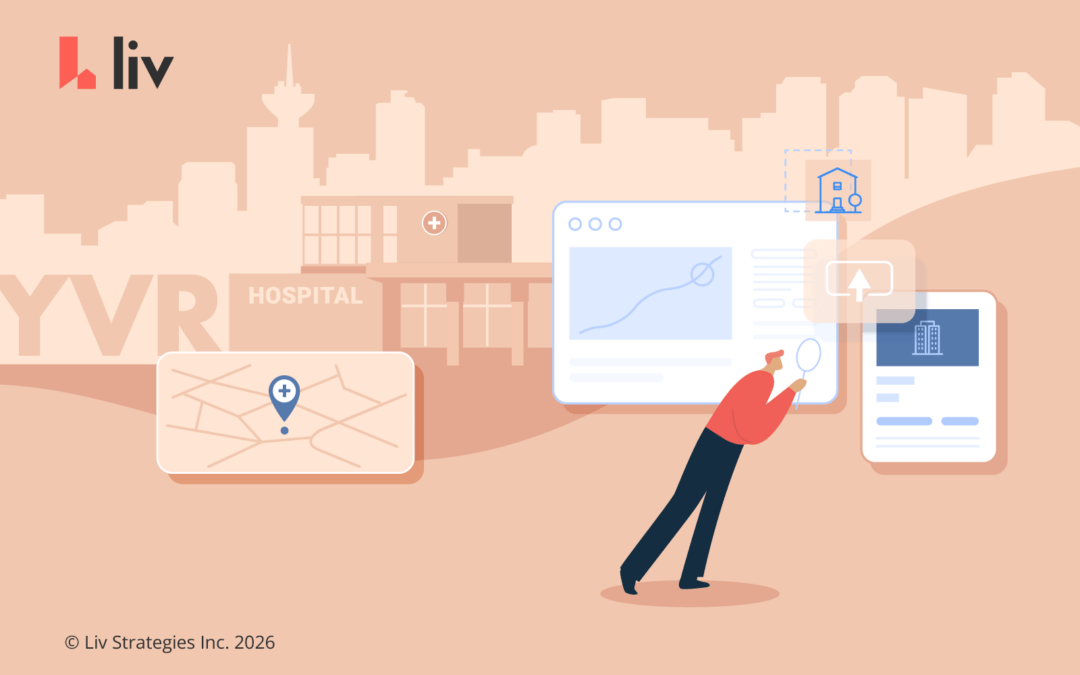As the Canadian rental industry continues to adapt and recover from the fallout of a global pandemic, 2022 looks to see a return to form for the sector. Like most of the world, the rental scene has seen a lot of meaningful changes in the past two years. Social distancing and renters looking to secure homes from abroad have shaken up the way properties are shown and documents are exchanged, for one thing, but there have also been deeper, structural changes to the ways Canadian property managers operate.
In this article, we identify the Top 10 Property Management Trends for 2022, and give our insights into what’s changed since 2021.
1. Growth of property technology (PropTech)
2. More efficient methods of communication
3. Prioritizing services over amenities
4. A streamlined rental process
5. Increased use of rental incentives
6. Maximizing clients’ investments
7. Increased flexibility with rental terms
8. Prioritizing tenant retention
Landlords & Property Managers
Advertise your rental for free on liv.rent – an all-in-one rental platform.
The Future of Property Management in 2022 – Top 10 Trends
1. Growth of property technology (PropTech)
We mentioned this trend last year as well, but we’re seeing more and more that the most successful management companies are increasingly relying on PropTech to automate their accounting, communications, portfolio management, and so much more. As broader adoption of technology takes hold in the property management and real estate industries, renters and owners alike are increasingly demanding modern technology.
Software and apps that enhance rental portfolio management will free up property managers to either expand their rental portfolios or expand their services to include, for example, maintenance services and furniture sourcing. Essentially, property managers will provide a suite of services enabling landlords and tenants to utilize the space more easily, much like what commercial landlords do for their tenants.
In addition to tech that simplifies leases, all other technologies that support remote environments like mobile data access and bulk email/text messaging will continue to gain traction in the property management community with responsive service being the key focus.
>> Recommended Reading: 5 Ways to Generate Property Management Leads
2. More efficient methods of communication
Property managers were inundated in 2020 with communications across all channels, be it email, telephone, SMS text. On one hand, nervous and panicking tenants looked to end leases early to return home, or to re-negotiate lease terms or rental rates. On the other hand, owners sought to convert from short term to long term rentals, to offer incentives to retain tenants, or to prepare a listing for sale.
As “necessity is the mother of invention”, communications will be streamlined in 2021. Rental management professionals will seek to adopt technology designed to capture communications between landlords and tenants all in one place; enabling better traceability and management.
Property managers can now effectively manage all their communications from the liv.rent dashboard. From here, you have access to your ‘digital filing cabinet’ – store, organize, and manage all your rental property documents like tenancy agreements, applications, references etc. You can also access entire chat histories of in-app conversations you’ve conducted with prospective or current tenants. This way, you will have a comprehensive documentation trail of all important conversations that may have taken place regarding rent payment, contract renewals or maintenance matters.
>> Recommended Reading: Landlord Dashboard: Digital Tools for Landlords & Property Managers
3. Prioritizing services over amenities
This past year, we’ve seen renters’ priorities change significantly as to what they look for in a rental property. Swimming pools and decked-out fitness facilities are no longer dealbreakers for the majority of tenants – instead, they increasingly seek out comfort and convenience in their everyday lives. Things like faster maintenance and upkeep, clearer lines of communication with property managers or landlords, and general care shown for the renters’ living experience. Property managers need to respond to these new concerns by making it clear to renters that they’re available and have access to all the necessary services.

4. A streamlined rental process
As many property managers and landlords faced a period of non-tenancy in 2021, they were reminded of the value of good, stable tenants. We predict that 2022 will see further emphasis on improving the rental experience for tenants; making it as seamless as possible through the continued use of virtual touring, digital applications, and secure online payments. Today’s renters expect convenience and efficiency, not to mention security, throughout the application and through to the lease being signed.
5. Increased use of rental incentives
As vacancies decrease once more in major cities across the country, property managers and landlords alike need to be ready to work a bit harder to secure quality tenants. Particularly in more crowded housing markets, rental incentives are an excellent way to entice renters. Consider offering things like gift cards for nearby restaurants, free parking, or even discounted or free rent. The rental market is returning to some semblance of normalcy, and if property managers want to find tenants quickly they should be ready to go above and beyond.
6. Maximizing clients’ investments
Property managers will increasingly be recognized for their value in assessing key information and understanding market trends. Property managers will need to be ready to help educate landlords on how best to maximize their investments based on rental yields, capital growth or short-term rental revenue. This will require a little homework and close collaboration with sales teams to ensure that clients’ are getting more out of their property investments.
7. Increased flexibility with rental terms
Short-term rentals have been gaining popularity as borders reopen and travel brings new temporary residents to Canada. If your clients are having trouble renting on a long-term basis, It may be worth reconsidering the lease terms and opening up additional options like short-term rentals.
8. Prioritizing tenant retention
Residential tenancy retention will be prioritized. In 2021 far more landlords and property managers experienced the financial pain of empty properties; demand all but evaporated as travel stopped and students returned home. Every month more units became empty, and revenue took a serious hit. Thankfully, this unfortunate trend looks to come to an end in 2022, but the past two years have shown that the property management industry needs to be prepared for anything.
To ensure higher tenancy retention, more emphasis is placed on tenant screening. For instance, property managers have switched to tools like liv.rent to assess a tenant’s suitability and financial viability. Through the platform’s unique Trust Score feature, property managers have access to the tenant’s digital application, which is verified against social media profiles and financial information; this more informed process makes it easier to find tenants. Property managers are also taking the necessary steps to enhance the resident experience throughout a tenancy in order to retain these good tenants. (See: Trend #2 – Emphasis on resident experience).
9.Longer leases
In expensive cities like Vancouver and Toronto, homeownership may never happen for a significant portion of the population. This generation of permanent renters is comprised of many professional, responsible tenants who are seeking greater housing security and are looking for lease terms that extend beyond the typical 12 months. As discussed above in #7, finding and retaining good tenants is financially and administratively beneficial to an owner, so more will be open to longer lease terms.
>> Recommended Reading: Toronto Rental Market – 2020 Recap and 2021 Outlook
9. Professionalization of property management
Traditional property management proved to be a dead-end career bogged down by administrative and accounting processes plus a lack of investment by real estate companies. With the advent of myriad property management technologies to streamline day-to-day functions, more time will be freed up for property managers to seek additional qualifications like a property investment advisor, interior designer etc; hence, allowing them to grow their property-as-a-service business. Moreover, property managers from other industries (e.g. data analysis, marketing, and management) will be drawn to the field. As their expertise and function within an agency grows, better career growth will ensure less turnover and better compensation.
10. Virtual tours and 3D videos
The quick adoption and reception of virtual showings during the pandemic shows that this trend is here to stay. Video tours have proved to be a great asset for property management companies as they shifted to accommodate COVID-19 protocols that demanded social distancing and minimal contact. Ultimately, video touring proved beneficial to everyone. Property managers reduced showings; consequently, saving time and minimizing disruptions to existing tenants. Likewise, tenants saved time by being better able to determine whether or not a property suited their needs before requesting an in-person viewing.
Future enhancements will continue to improve user experience, providing landlords with a rich and powerful tool to employ when seeking to attract good tenants.
What will 2022 look like for property managers?
As rental rates continue their climb in major cities across the country, property managers have a lot to look forward to in 2022. The post-pandemic rental push has seen tenants return in droves, and landlords will likely turn to property managers to help them keep up. The rental scene in Canada may look a little unfamiliar though, as the industry has been forced to constantly stay on its toes and adopt new technologies and methods. To sum up our advice for property managers: be ready to adapt, and

Rethink The Way You Rent
Not on liv.rent yet? Experience the ease of digital applications & contracts, verified tenants & landlords, virtual tours and more – all on one platform. Sign up for free or download the app.
Subscribe to receive the latest tenant & landlord tips and get notified about changes in the Canadian rental market.
>> Stay up-to-date on the average rent in Vancouver, Toronto and Montreal: Rent Reports.
Cover Photo Image Source: Unsplash



0 Comments